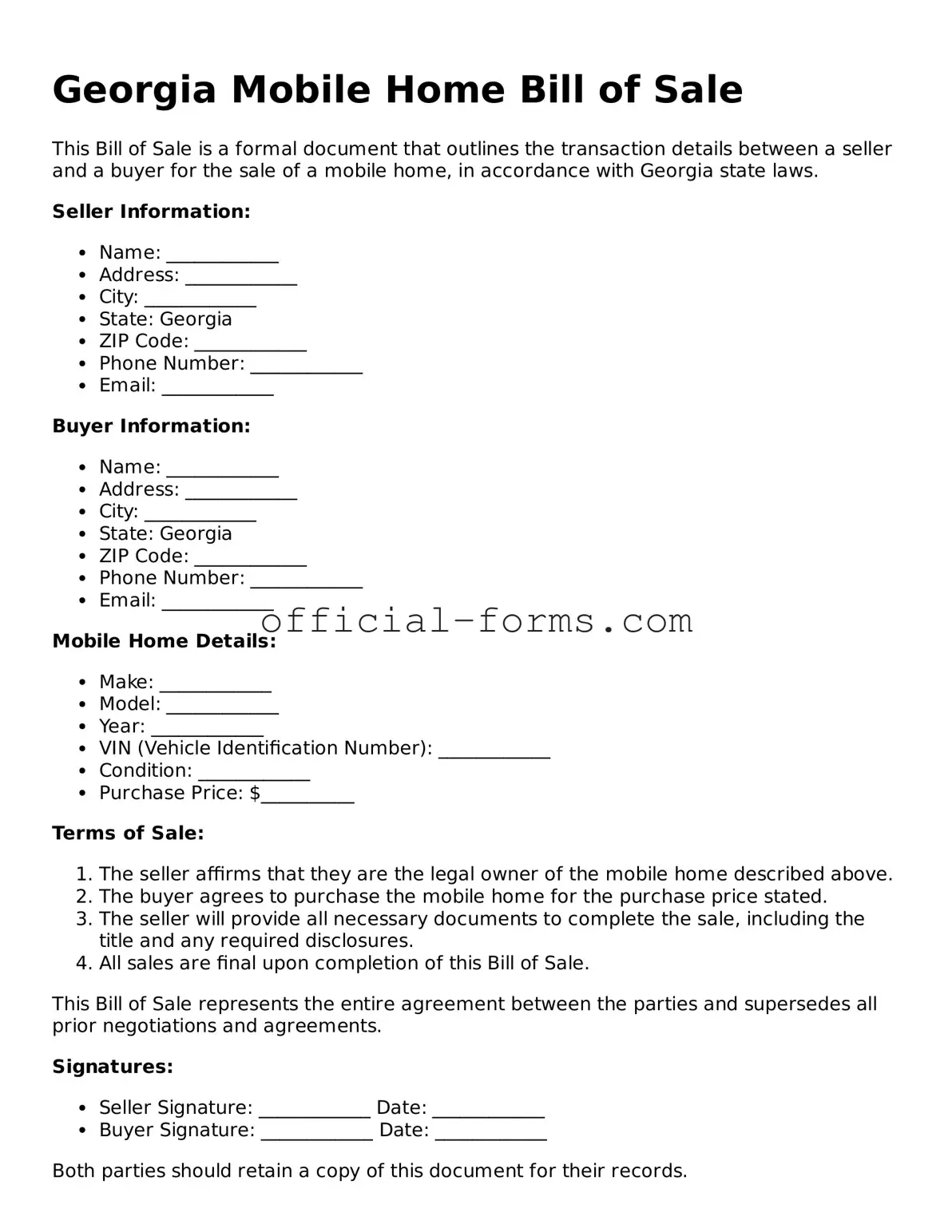Official Georgia Mobile Home Bill of Sale Document
The Georgia Mobile Home Bill of Sale form is a legal document used to transfer ownership of a mobile home from one party to another. This form serves as proof of the sale and outlines essential details such as the buyer and seller's information, the mobile home's description, and the sale price. Understanding this form is crucial for both buyers and sellers to ensure a smooth transaction and protect their rights.
Open My Mobile Home Bill of Sale Now

Official Georgia Mobile Home Bill of Sale Document
Open My Mobile Home Bill of Sale Now
Don’t leave your form incomplete
Finish Mobile Home Bill of Sale online quickly from start to download.
Open My Mobile Home Bill of Sale Now
or
➤ PDF
